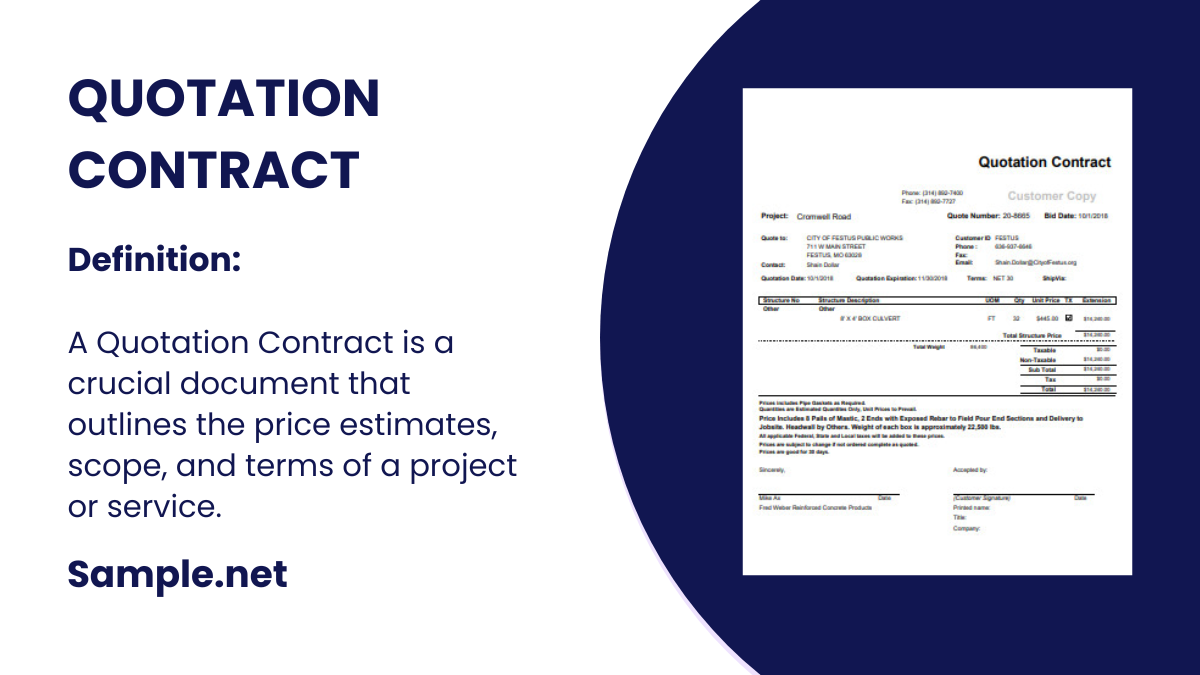A Quotation Contract is a crucial document that outlines the price estimates, scope, and terms of a project or service. It bridges the gap between clients and service providers,…
continue readingDownload School Project Proposal Bundle
Contract Letter Format
[Your Company Name]
[Your Company Address]
[City, State, ZIP Code]
[Email Address]
[Phone Number]
Date: [Insert Date]
[Recipient’s Name]
[Recipient’s Job Title]
[Recipient’s Company Name]
[Recipient’s Company Address]
[City, State, ZIP Code]
Subject: Contract Agreement for [Project/Service]
Dear [Recipient’s Name],
I am writing to formalize our agreement regarding the provision of [specific service/project] by [Your Company Name] to [Recipient’s Company Name]. Below are the terms and conditions of the contract, which have been mutually agreed upon:
1. Scope of Work
[Describe the services or work to be provided in detail.]
2. Duration of Contract
The contract will commence on [start date] and will continue until [end date] or until the completion of the project, as per the scope of work.
3. Payment Terms
[Detail the payment terms, including amount, payment method, and due dates.]
4. Confidentiality
Both parties agree to maintain the confidentiality of any sensitive information shared during the course of the project.
5. Termination Clause
Either party may terminate the contract with [insert notice period, e.g., 30 days] written notice. In the event of early termination, the parties will settle any outstanding payments.
6. Liability and Indemnity
[Your Company Name] will not be liable for any damages or losses that may occur due to [limitations and responsibilities].
7. Signatures
This contract represents the entire agreement between both parties. Please sign below to indicate your agreement to the terms outlined.
[Your Company Name]
Signature: _____________________
Name: _________________________
Title: __________________________
[Recipient’s Company Name]
Signature: _____________________
Name: _________________________
Title: __________________________
Contract Letters
-
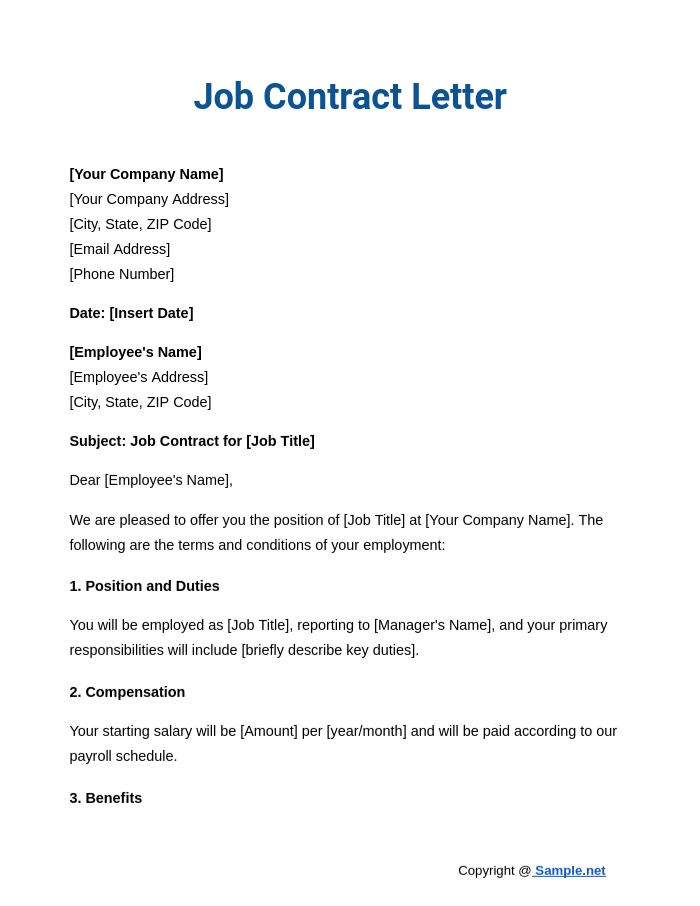
Job Contract Letter
download now -
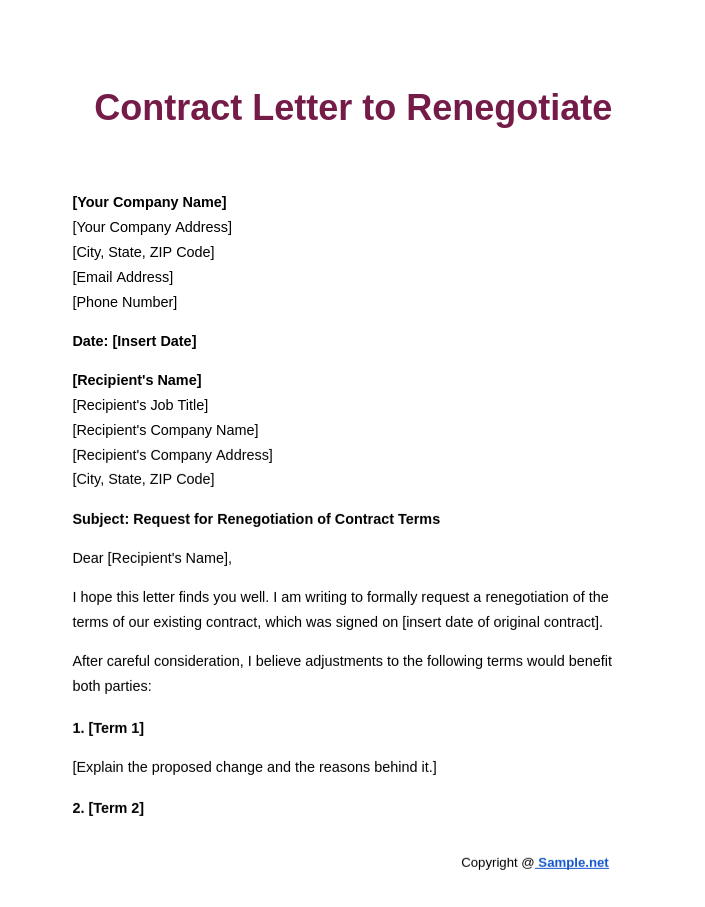
Contract Letter to Renegotiate
download now -
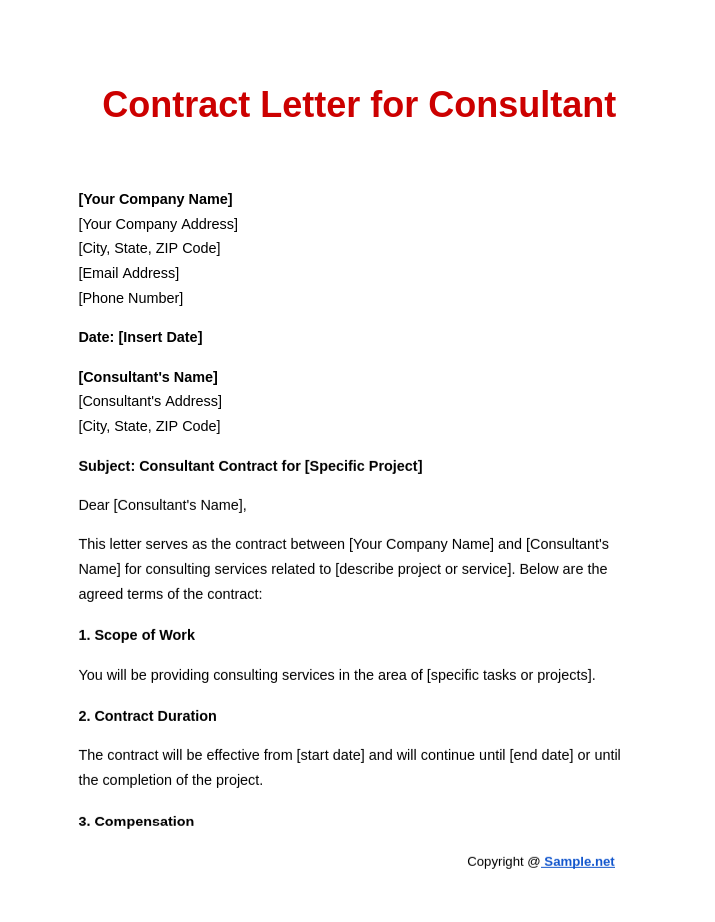
Contract Letter for Consultant
download now -
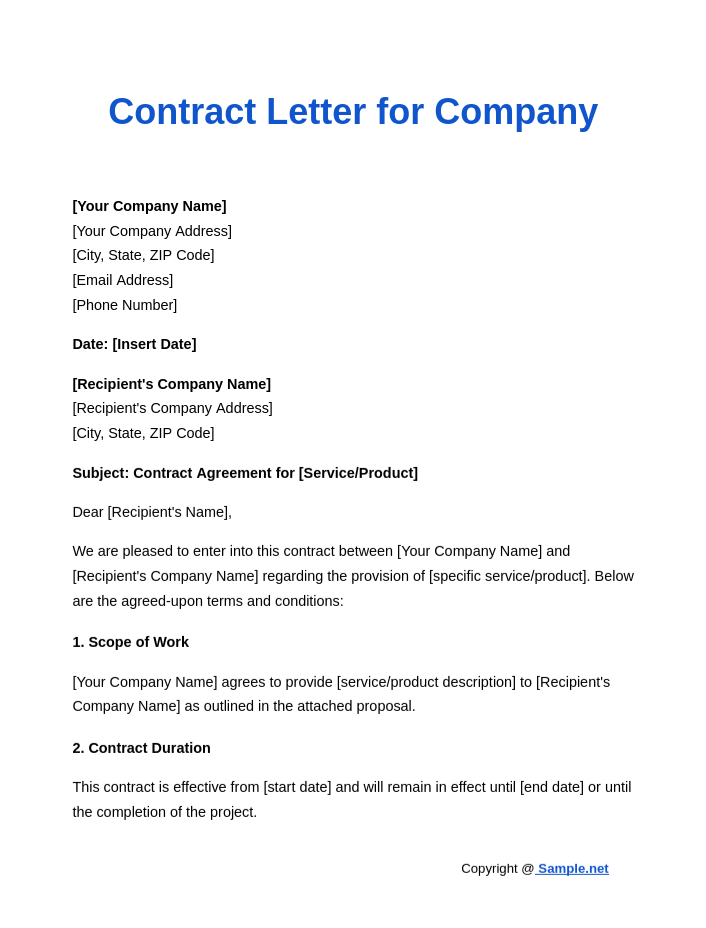
Contract Letter for Company
download now -
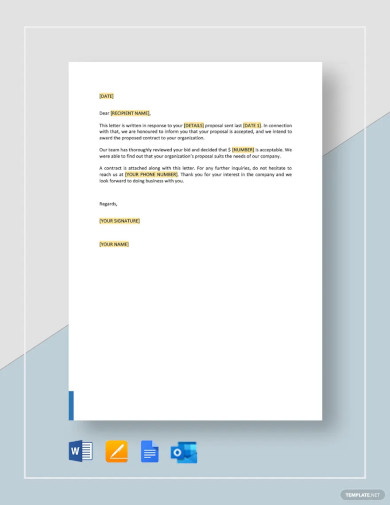
Awarding Contract Letter Template
download now -
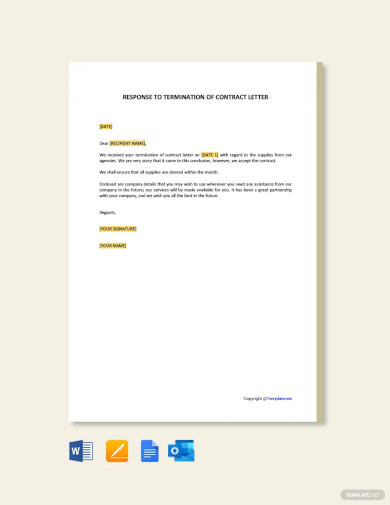
Response to Termination of Contract Letter Template
download now -
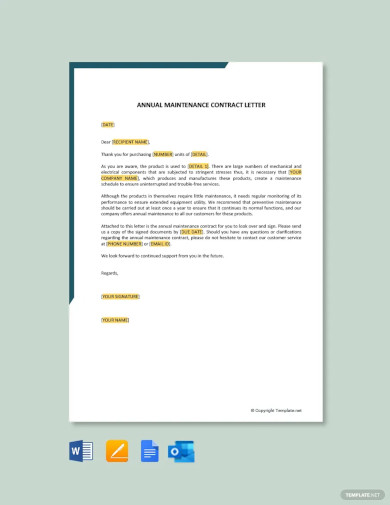
Annual Maintenance Contract Letter Template
download now -
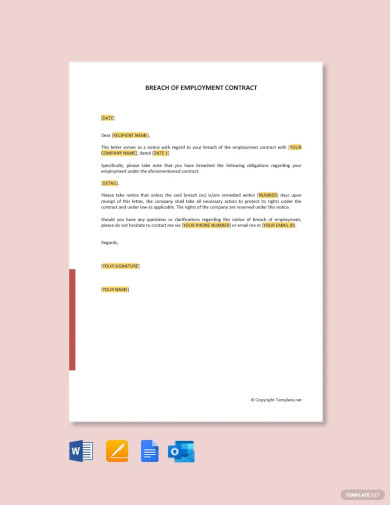
Breach of Employment Contract Letter Template
download now -
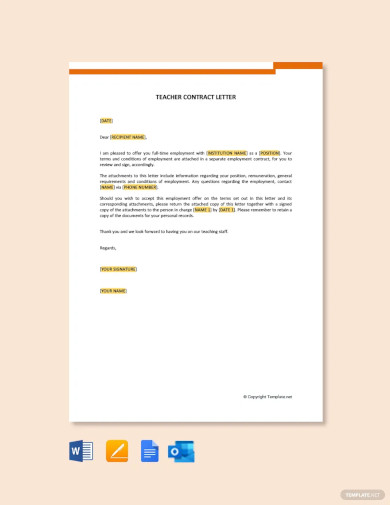
Teacher Contract Letter Template
download now -
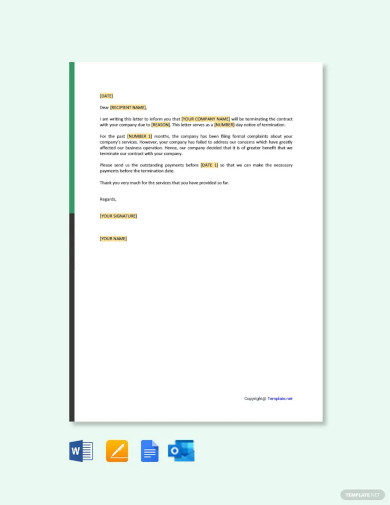
Contract Termination Letter Due To Poor Performance Template
download now -
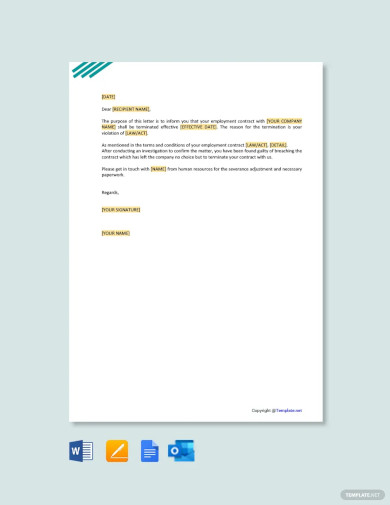
Employment Contract Termination Letter Template
download now -
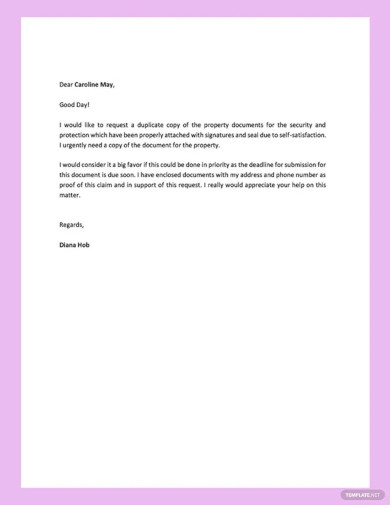
Contract Request Letter Template
download now -
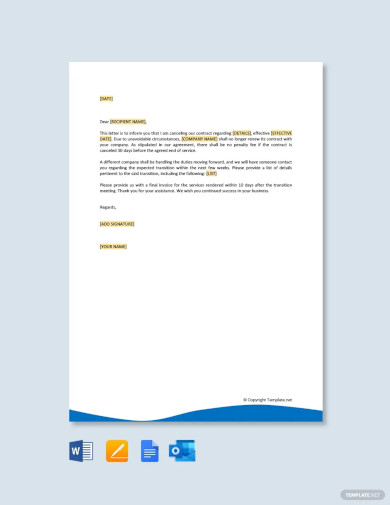
Contract Cancellation Letter Template
download now -
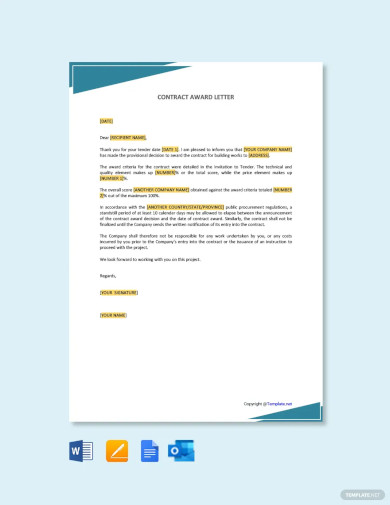
Contract Award Letter Template
download now -
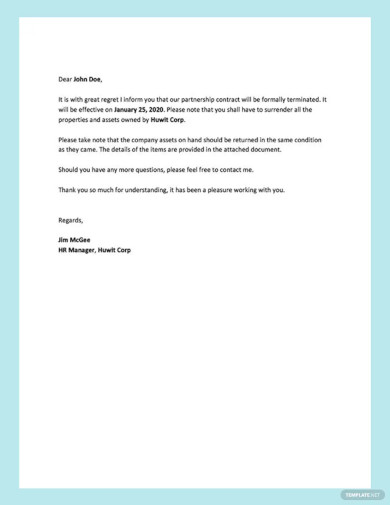
Contract Termination Letter Template
download now -

Contract Offer Letter Template
download now -
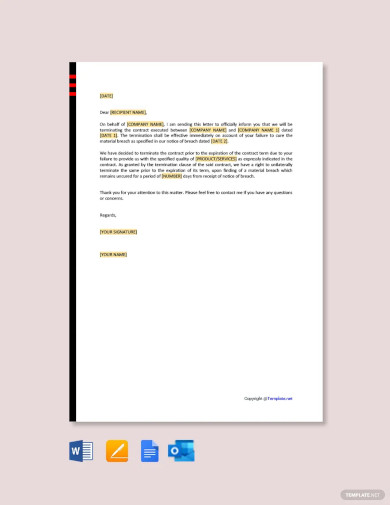
Business Contract Termination Letter Template
download now -
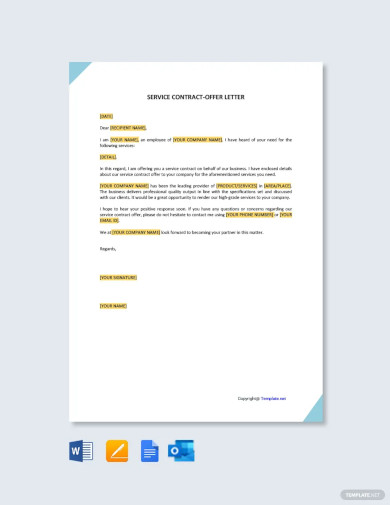
Service Contract Offer Letter Template
download now -
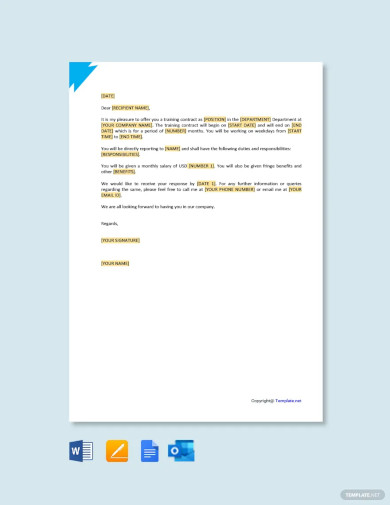
Training Contract Offer Letter Template
download now -
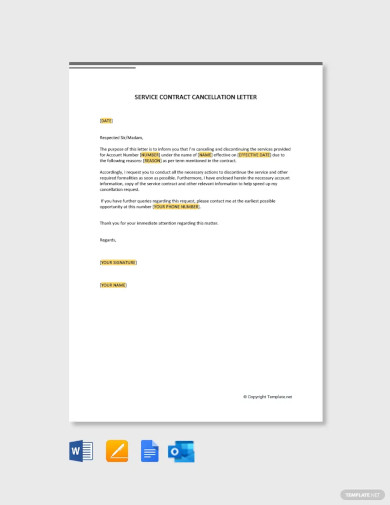
Service Contract Cancellation Letter Template
download now -
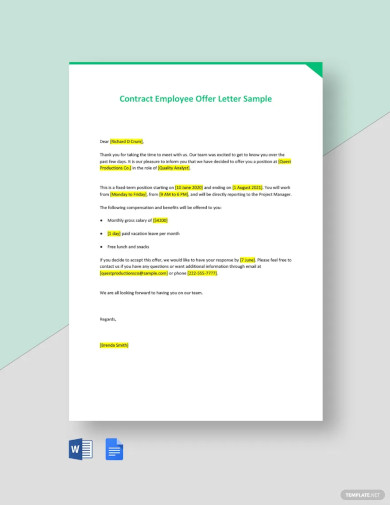
Contract Employee Offer Letter Sample Template
download now -
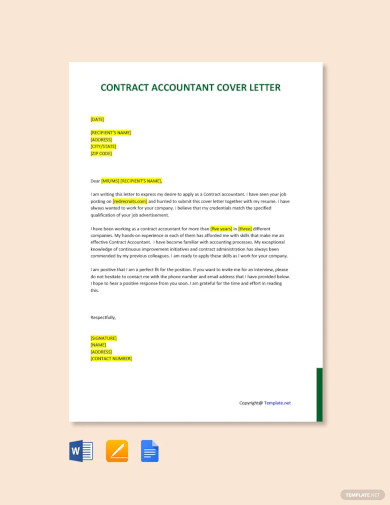
Contract Accountant Cover Letter Template
download now -
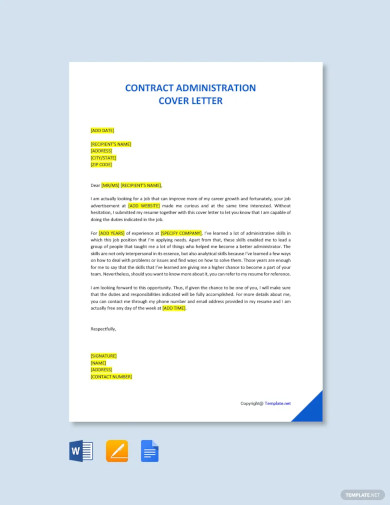
Contract Administration Cover Letter Template
download now -
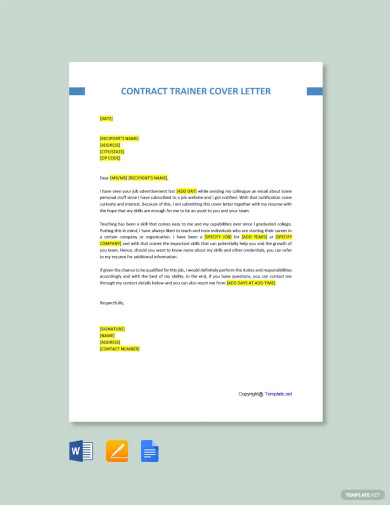
Contract Trainer Cover Letter Template
download now -

Sample Awarding Contract Letter Template
download now -
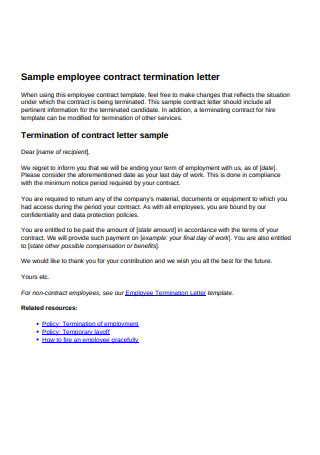
Sample Employee Contract Termination Letter
download now -
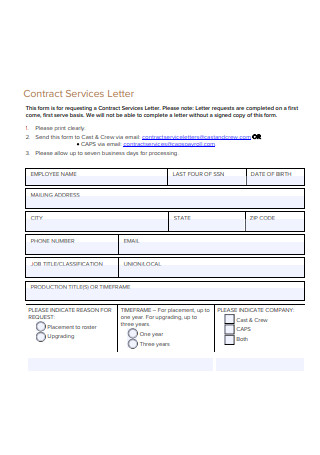
Contract Payment Services Letter
download now -
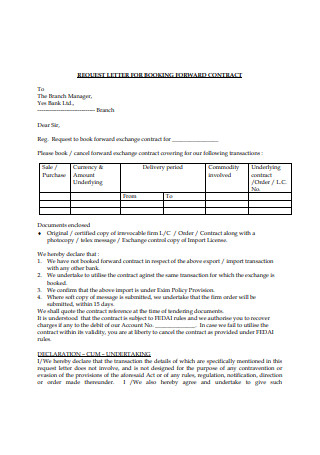
Business Contract Request Letter
download now -
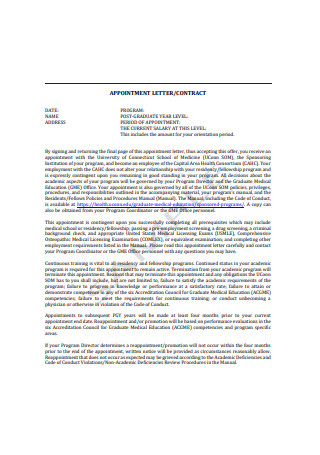
Contract Renewal Appointment Letter
download now -
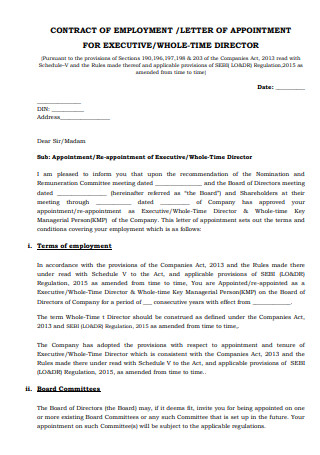
Employment Construction Contract Letter
download now -
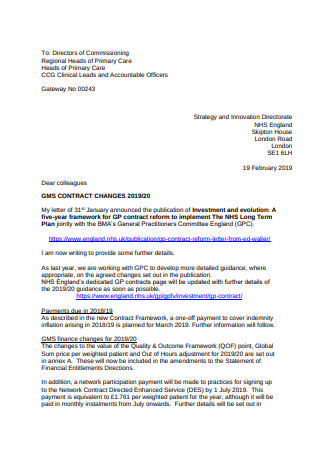
Acceptance Contract Letter Sample
download now -
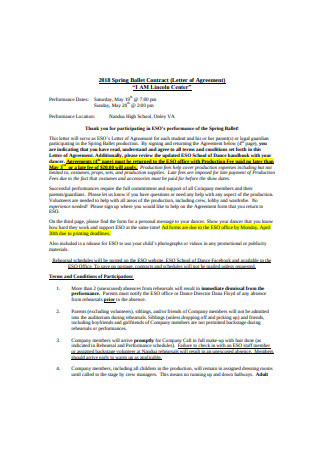
Formal Contract Agreement Letter
download now -
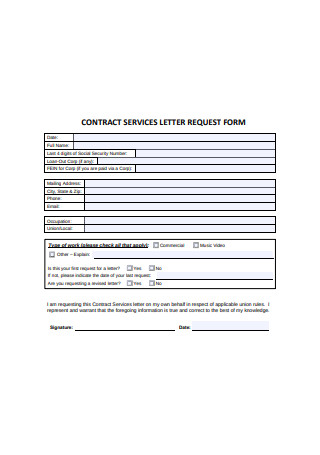
Contract Services Letter Request Proposal Form
download now -
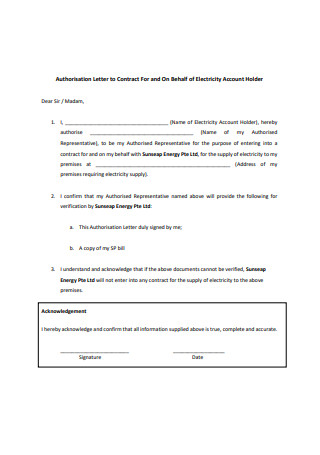
Contract Offer Letter Format
download now -
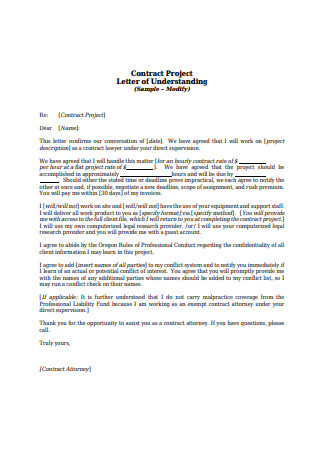
Sample Contract Termination Letter
download now -
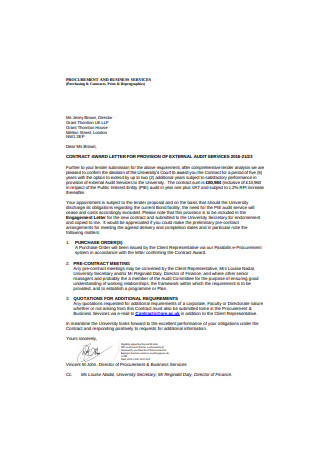
Contract Award Cancellation Letter
download now -
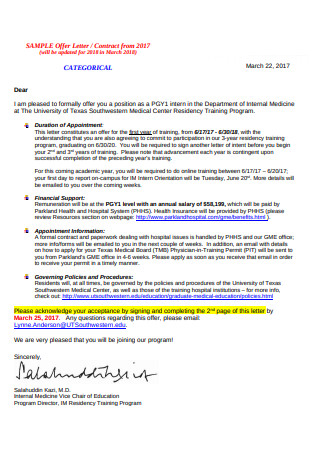
Contract Extension Letter Example
download now -
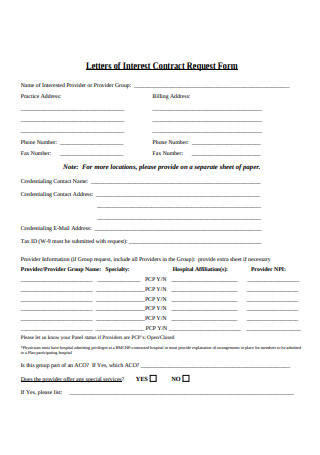
Letters of Interest Contract Non-Renewal Request Form
download now -
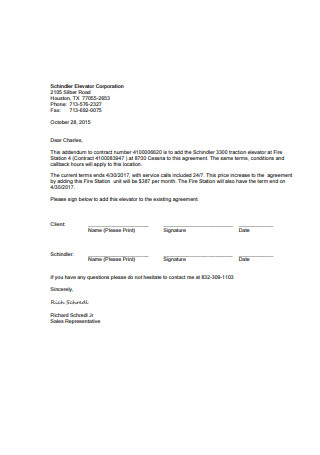
Contract Confirmation Addendum Letter
download now -
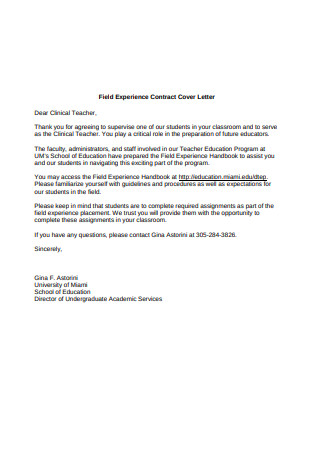
Contract Notice Cover Letter
download now -
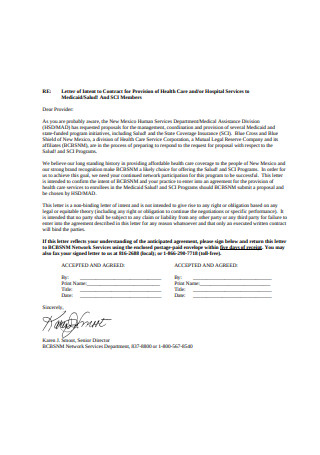
Contract Legal Intent Letter
download now -
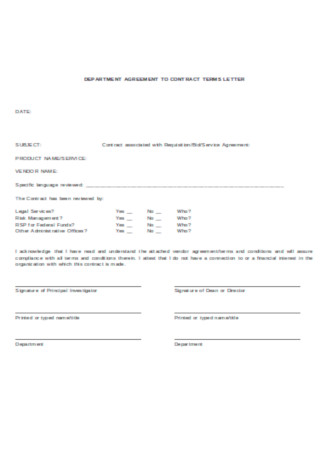
Contractor Internship Agreement Letter
download now
What Is a Contract Letter?
A contract letter is a legally binding document shared between the party who provides the service and the party who avails of such service. It specifies the scope and extent of the time-bound agreement shared between the employer and employee. Also, the document explicitly defines the nature of the job, the terms of employment, and the duties and obligations of both the worker and the company. The written agreement binds the two bodies under the described terms and serves as an instrument for future conflict resolution. You can see more on Letters of Agreements.
Elements of a Contract
A long time ago, a verbal agreement and a handshake were sufficient when coming to terms about a business transaction. The relationship was built on mutual trust. However, you cannot risk the company’s welfare for the concept of good faith. And it is not because people today cannot be trusted. You are responsible for the good of many others, so you have to exercise all means necessary to protect the interest of the organization. Although there is an oral iteration of the agreement, a written version holds more legitimacy and power.
Unwritten contracts and agreements also invite ambiguity. During disputes, it is harder to seek compensation for damages or to prove that the claims of such are unfounded. A violator may also walk free from any form of accountability because no part in the contract makes his or her actions illegal. You may even be sued for the damages the stir has caused the person. Transcribing the business deal makes enforcing the agreed obligations of both parties easier. Therefore, you should explicitly delineate the terms of employment so that you can go back to it when you need to.
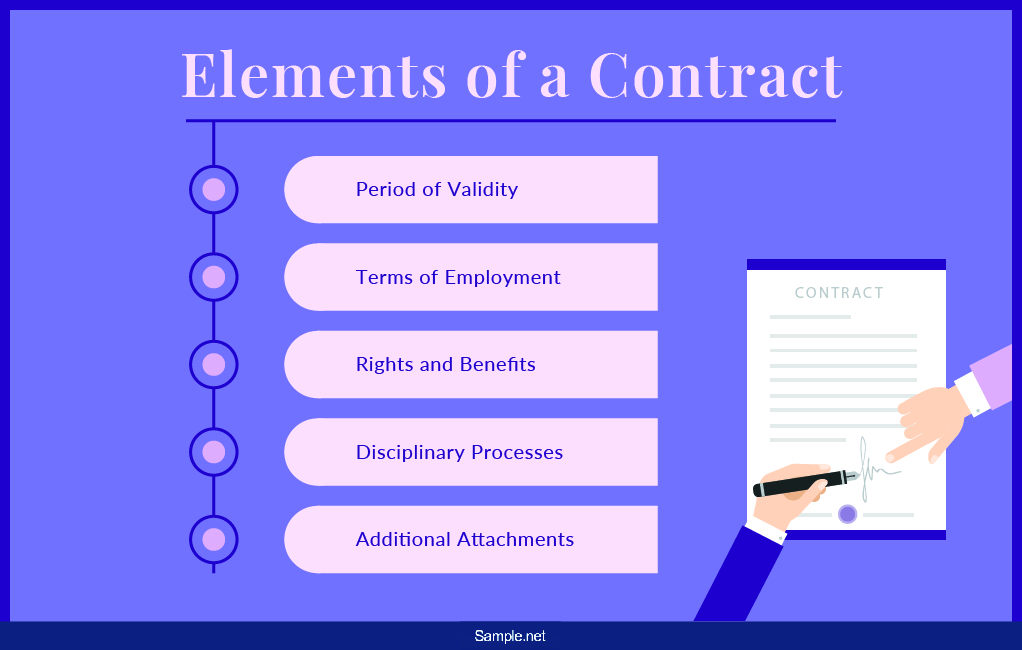
The Validity of a Contract Letter
A contract is not valid just because you completely defined the previous elements. Note that some factors would make the contract void, and there is a difference between void and voidable contracts. You can engage in a voidable contract because it is legal. Either party can enforce the obligations in the document and withdraw from it. Furthermore, withdrawal can be due to personal reasons or a breach of contract. The latter occurs when either party did not adhere to a term or condition in the agreement.
On the other hand, the terms in a void contract cannot be enforced on either party. This is because the contract had no legal standing when it was formulated. To ensure that you are not at the losing end of the agreement, it is important to know what grounds make the contract valid. After knowing what a contract should contain, what, then, constitutes the legality of the terms in the agreement?
Legal Motive
For a contract to be valid, the intention of both parties that came into the agreement is also legal. In this case, the employee intends to earn money by providing service. At the same time, the employer intends to avail of the service for his or her business.
Valid Offer
The two parties enter into a contract when one offers something that the other accepts. The offer comes with a promise to be fulfilled. In a company setting, the employer offers the job to the employee in exchange for compensation. The employee then accepts the offer and its terms.
Mutual Assent
The parties mutually consent to the terms and conditions of an agreement. For example, the employer will provide the salary after the company employee has rendered the paid-for service. Also, remember that the contract has a period of validity. Therefore, once the employer has completely paid for the service, the employee will no longer receive more.
Consideration
There has to be a profit of one and a loss of another to make the promise valid. For an employment contract, the company pays money in exchange for the service or labor of an employee. This element should be agreed prior to the exchange. Any legal service contract requires consideration for it to be valid.
Informed Consent
Both parties can legally consent to the agreement. They should be of legal age and are of sound mind. During the time of the negotiation or deal, they should not be under the influence of drugs or alcohol. Additionally, the agreement should be made without pressure, intimidation, fraud, or deception. Neither party should be in a false impression about the deal.
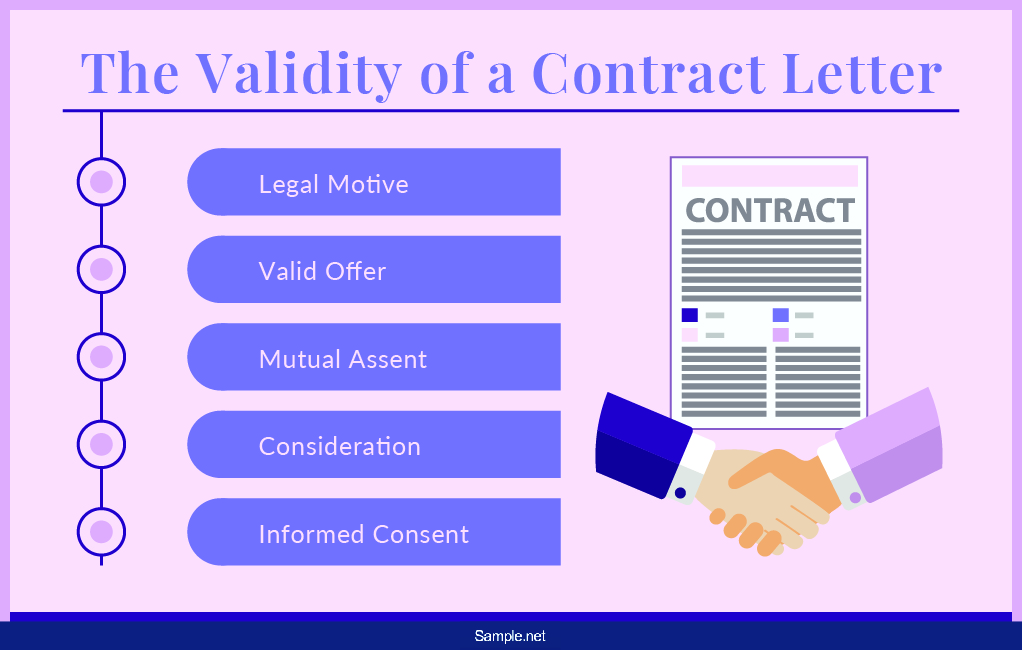
What are the Different Types of Employment Contracts?
1. Permanent (Indefinite) Contracts
- Duration: No fixed end date.
- Features: Job security, full benefits, ongoing employment until terminated by either party.
2. Fixed-Term Contracts
- Duration: Specific period or project-based.
- Features: Defined start and end dates, may be renewable, suitable for temporary projects or seasonal work.
3. Part-Time Contracts
- Duration: Fewer hours than full-time.
- Features: Pro-rated benefits, flexible schedules, common in retail and hospitality.
4. Temporary Contracts
- Duration: Short-term to meet immediate needs.
- Features: Limited duration, often through staffing agencies, fewer benefits.
5. Zero-Hour Contracts
- Duration: No guaranteed hours.
- Features: Pay only for hours worked, high flexibility for employers, less job security for employees.
6. Freelance/Independent Contractor Agreements
- Duration: Project-based or ongoing as needed.
- Features: Self-employed, control over work methods, responsible for own taxes and benefits.
7. Casual Employment
- Duration: Irregular hours as needed.
- Features: Flexibility, typically lacks benefits, suitable for fluctuating workloads.
8. Seasonal Contracts
- Duration: Tied to specific seasons or periods.
- Features: Temporary with clear start and end times, common in tourism and agriculture.
9. Apprenticeships and Traineeships
- Duration: Fixed period with training components.
- Features: Combines work and learning, often leads to permanent positions.
10. At-Will Employment (Primarily in the U.S.)
- Duration: Ongoing until terminated.
- Features: Either party can end employment at any time for any lawful reason.
11. Consultancy Agreements
- Duration: Defined project or time frame.
- Features: Specialized services, clear deliverables, often includes confidentiality clauses.
Argument Against Legal Jargons
Contracts are not a rare occurrence. Most people may have already encountered a simpler version of a contract as they navigate the Internet. However, the majority of these people just click “Agree” without reading the terms and conditions of what they agree to. The TL;DR (Too Long; Didn’t Read) mentality, as the online community calls it, has grave consequences as stating that you didn’t read the contract because it was too long will not stand in court. Although it is the responsibility of the signatories to understand first what they are saying “Yes” to, we can’t put the blame solely on the layperson. It is counterintuitive to use the exclusive legal parlance in writing content for the average person’s consumption.
Aside from lack of information on the repercussions of agreeing to what you don’t know about, part of what makes people click immediately on “Agree” is the length and readability of the document. The average non-lawyer person will not bother reading through paragraphs upon paragraphs of obscure content. This puts the person at risk. Imagine the statement “We have the right to use the identity you provided, and we can hand it to third-party data companies if we want to” discreetly embedded among big and vague legal terms that the person did not bother to read. The example may be unrealistic and not at all legal, but that is the point. Legal parlance, aiming to be as exact and unambiguous as possible, became what it swore to fight against.
Since people from any stature may contract, there is a movement to make the language used accessible to the layperson. A business writing article in the Harvard Business Review magazine argued that there is no practical need to use legal jargon when the contract can deliver the same message in a simple, mass-oriented language. Contracts should be understandable by the person reading it. Business contracts do not have to completely shift to the colloquial language. The point is that when you use long, winding paragraphs that can be simplified, and they still carry the same specificity in its message, it may be an indication that you are being unnecessarily wordy to stick to the status quo.
How to Draft A Contract
At the end of the day, the company and the employee engage in a contract to protect both their interests without overriding the other’s rights. The agreement serves as specific guidelines that govern the functions of both parties. Prepare the contract with its purpose in mind.
Step 1: Verify the Identity
People may not be who they claim they are. It goes without saying that you should know who you are making arrangements with. You also need the correct identity of the other party in the contract. The agreement must bind the correct people under its terms. Verification helps safeguard your company from fraudulent and unlawful activities. When signing the contract with the person, ask for a valid form of identification, such as an official ID card, government ID card, passport, and other identifying documents.
Step 2: Prepare the Agreement
Written contracts have more bearing and power than oral contracts. With a documented agreement at hand, there is hard evidence that can support present and future assertions concerning the terms and obligations. It is easier to secure accountability and enforce obligations because you have a written record of the deal. You can either start from scratch or look for a printable contract letter template that is specific to your industry. Different industries will have a variation in the content of their agreement. Make sure that the template you use covers all the bases that will save you legal trouble down the road.
Step 3: Make Contracts Job-Specific
Just because a particular industry uses a statement or clause in their contract, doesn’t mean you should follow suit. Make sure that your document is not generic. For example, the position may not need you to include a non-disclosure agreement since the person would not even be a participant in the discussion of the company’s sensitive information. A person that does not deal with proprietary data or insider information does not have to sign a covenant for a non-compete. Different positions in the company have different responsibilities.
Step 4: Avoid Ambiguity
When you are defining the terms that bind the two parties and govern the relations, you have to be clear and specific with the delineations. Describe what is expected from both parties. To efficiently carry out the functions agreed beforehand, these must be elaborated at the start. You cannot just say that the person does something wrong when you haven’t defined what the right thing to do is. Ambiguous terms leave a lot of room for misinterpretations and disputes regarding what is the right interpretation.
Step 5: Talk with Your Lawyer
No one knows the law better than those who have studied and specialized in it. After you have drafted the contract, always have the company lawyer review its details. You may have missed out on essential clauses, or your sections may have included vague provisions that can jeopardize the company later on. Talking with the expert in law helps ensure that there is no loophole that a violator can exploit. Doing so helps protect your business’ interest. A solid agreement lets your company legally apprehend violators and address the damages.
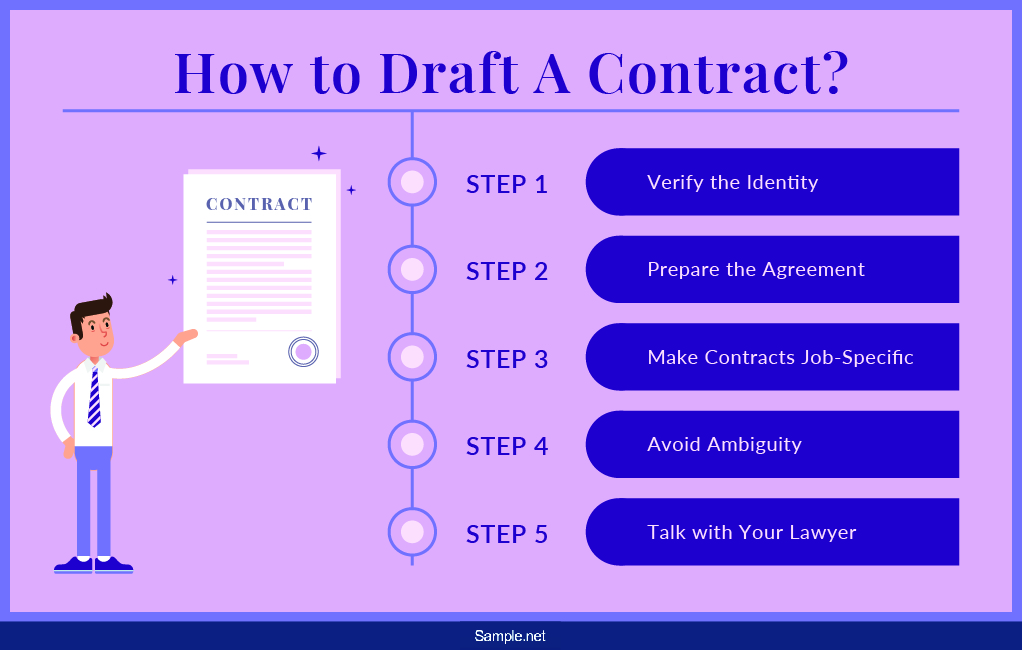
FAQs
How can I terminate a contract?
When the company decides to end the employment contract, the HR office notifies the employee through writing. The termination process should follow the agreed terms in the contract. The company should notify the said employee within the notice period indicated in the agreement.
Is a job offer letter the same as a contract?
No, job offer letters are not contracts, and they are not legally binding. A job offer letter is an invitation given by the company to a potential employee. It contains the job details. The invite can also be through a phone call or email. A contract is a legally binding document that specifies the terms and conditions of employment. It is signed when the potential employee is hired.
What is the difference between contract letters and employment letters?
A contract letter states, in detail, the responsibilities and obligations of the employer and employee. An employment letter is a document signed by the company that verifies the employment status and details of the employee. One of the instances wherein your workers would ask for the latter is when they are looking for apartments to rent.
In conclusion, a well-drafted contract letter is vital for ensuring a clear, legally binding agreement. Both parties should thoroughly review and agree upon the terms before signing. This document not only solidifies the agreement but also safeguards the interests of everyone involved. By signing, all parties confirm their commitment to uphold the agreed-upon terms. You can see more on Formal Letters.
